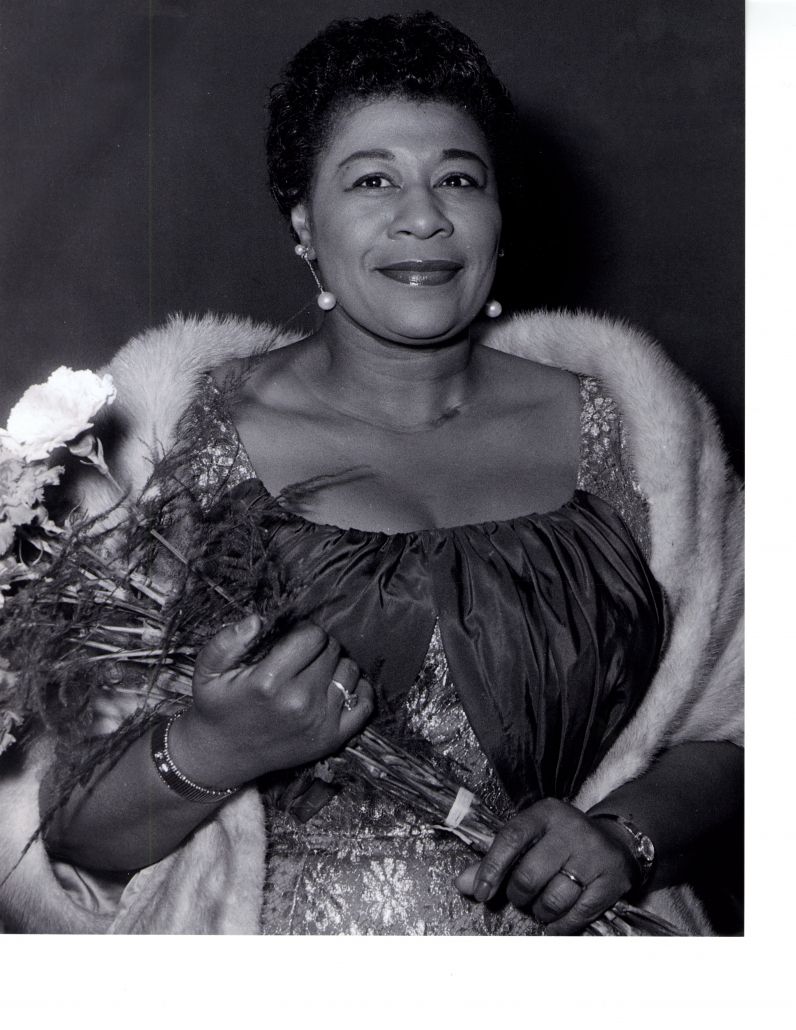SDA to offer first musical theatre scholarship

Ella Fitzgerald was one of the most popular jazz singers in the United States, winning 13 Grammy awards and selling over 40 million albums with her flexible, wide-ranging and timeless voice. She also faced many challenges throughout her career, from losing her mother and being a teenage runaway, to facing discrimination in the entertainment industry and on tour.
The Ella Fitzgerald Charitable Foundation was created and funded by the “First Lady of Song” herself in 1993, led by her desire to use her successful musical career to help others interested in music from diverse backgrounds. What started as a small private foundation has grown over the years.
The foundation gave its first scholarship in vocal jazz to the California State University, Long Beach almost 20 years ago. Since then, the foundation has funded scholarships at public universities and community colleges all over the country, including New York, Virginia and North Carolina.
Beginning Fall 2021, the Ella Fitzgerald Charitable Foundation will be partnering with the USC School of Dramatic Arts to offer four-year scholarships to two incoming first-year musical theatre students. The aim of the program is to make education more accessible to marginalized students with financial need.
The musical theatre scholarship for SDA students will be the 30th scholarship that the Ella Fitzgerald Charitable Foundation has endowed, as well as the first scholarship given for a musical theatre program. The scholarship will also be the first that the SDA musical theatre program, which was launched in Fall 2019, will receive. According to executive director Fran Morris-Rosman, the Foundation has provided partial scholarships to students at the USC Thornton School of Music in the past.
“If you think back in music history, the history of jazz is pretty darn color blind,” Morris-Rosman said. “Ella worked with everybody … She worked with musicians from all over the world, who looked like everybody we have on the planet, so we want the musical theatre department to reflect Ella’s world.”
Morris-Rosman said that the Foundation had been looking to include a musical theatre scholarship for about a year, since Fitzgerald had sung many Broadway show tunes during her career. After having enjoyed SDA’s 2012 production of “City of Angels,” as well as great conversations with Kenneth Noel Mitchell, director of musical theatre at USC, Morris-Rosman decided to continue Fitzgerald’s charitable legacy. Fitzgerald had also been awarded the USC Magnum Opus Award in 1992.
According to Sara Fousekis, associate dean of advancement at SDA, the scholarship will be designated to Black and Indigenous people and people of color in accordance with the school’s commitment to training more BIPOC students.
“It’ll allow us to give scholarships to incoming students for generations to come, but it also achieves our goal of making sure that our program is the most diverse program that it can be,” Fousekis said. “These scholarships from a foundation like the Ella Fitzgerald [Charitable Foundation] are so crucial because sometimes it’s the difference between a student being able to make the finances work to come and pursue their dreams in the arts.”
Fousekis also hopes the scholarship will be an incentive to secure the best talent from across the globe and to compete with other reputable programs such as the University of Michigan and New York University.
“I hope it will allow us to be a more accessible program to the widest student [representations] from around the world,” Fousekis said. “I hope it will create a sense of pride for the scholars that are attached to this legend of Ella Fitzgerald, and I hope it will be the beginning of many more scholarships for the musical theatre program.”
According to Mitchell, the student reaction to the Ella Fitzgerald Charitable Foundation Scholarship has been very positive. He hopes it will make students from marginalized communities feel less isolated and more hopeful about their future.
“We hope to change the face of musical theatre,” Mitchell said. “It is a broader range of representation of identities that we see everyday in society, but we don’t see on stage, film, and TV as much as we should — and that is because there are not enough creative opportunities available.”
Mitchell also said that he hopes that the scholarship, as well as Fitzgerald’s story and mark on an industry that is not welcoming to BIPOC individuals, demonstrates the importance of acknowledging the many diverse identities that exist that do not have the opportunity to finance their training.
“I really hope that we diversify our student population and our faculty,” Mitchell said. “I really hope that we will be known as a school that not only welcomes diversity but is excited by it, and allows actors of all different identities to really know they have a place to train, and a place to be seen in the entertainment industry.”
To learn more about the Ella Fitzgerald Charitable Foundation, click here.

